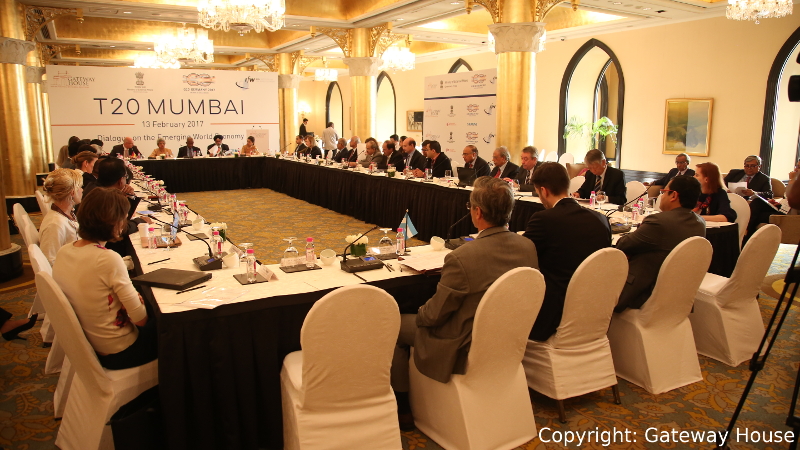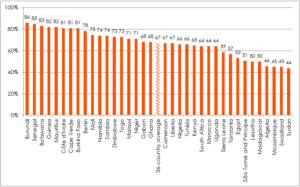
Die Probleme des Nahen Ostens und Nordafrikas – gewaltsame Konflikte, autoritäre Herrschaft, wirtschaftliche Stagnation und islamistischer Radikalismus – sind für die deutsche Regierung und die öffentlichen politischen Debatten in Deutschland von großer Bedeutung; dies gilt insbesondere für das Wahljahr 2017. Eine kohärente und effektive Gestaltung der deutschen Politik für die Region ist nur durch eine langfristige „Whole of Government“ Strategie und Einsatz möglich.




 Gateway House hosted a T20 meeting in Mumbai on February 14, 2017 in collaboration with the Kiel Institute for the World Economy and the Ministry of External Affairs, Government of India, with support from GIZ and Siemens India. This was the third time Gateway House hosted a T20 meeting; previous editions were held in 2015 under the Turkish Presidency with the leading Turkish think tank TEPAV, and in 2016 under the Chinese Presidency with the leading Chinese think tanks — Institute for World Economics and Politics, Shanghai Institute for International Studies, and Chongyang Institute for Financial Studies.
Gateway House hosted a T20 meeting in Mumbai on February 14, 2017 in collaboration with the Kiel Institute for the World Economy and the Ministry of External Affairs, Government of India, with support from GIZ and Siemens India. This was the third time Gateway House hosted a T20 meeting; previous editions were held in 2015 under the Turkish Presidency with the leading Turkish think tank TEPAV, and in 2016 under the Chinese Presidency with the leading Chinese think tanks — Institute for World Economics and Politics, Shanghai Institute for International Studies, and Chongyang Institute for Financial Studies.